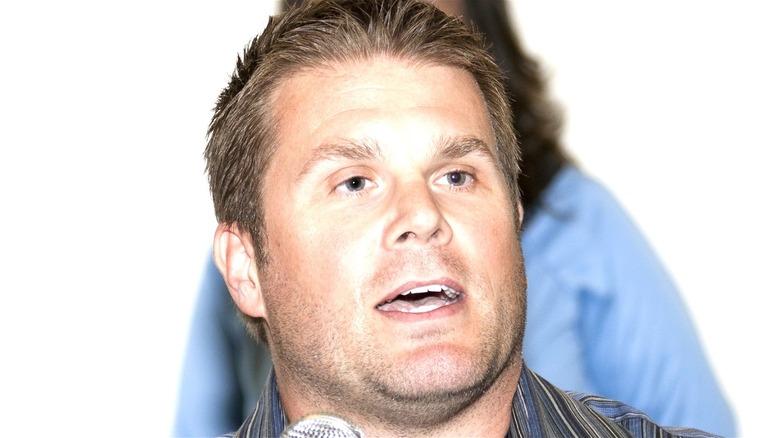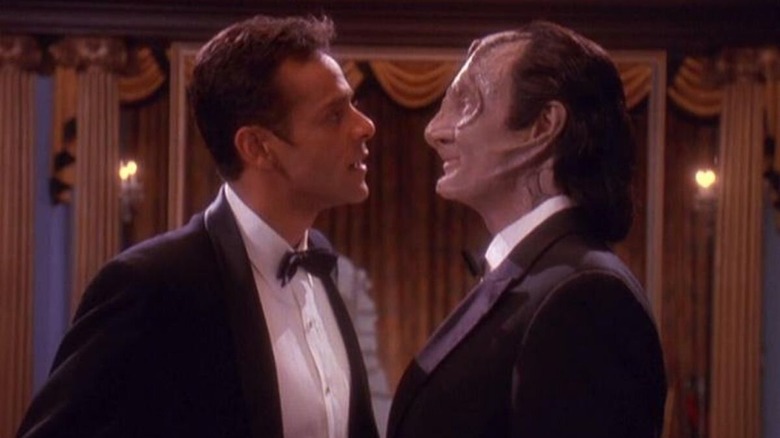Rod Roddenberry Weighs In On The History Of Star Trek's LGBT Characters - Exclusive
"Star Trek" was undeniably a groundbreaking show, especially the original series was initially aired. Showing men and women across racial lines regarded as equal and working largely in harmony sent a strong message about the future. This legacy of inclusiveness is best represented by Lieutenant Nyota Uhura (Nichelle Nichols). Her role as a Black female bridge officer famously caught the attention of Martin Luther King, Jr, who personally convinced Nichols to stay on the show (via NPR). Season 3 also saw Kirk and Uhara kiss, with their interracial liplock often regarded as a landmark TV moment.
After that, however — though it may be an unpopular opinion — "Star Trek's" legacy of inclusiveness is up for debate. Having Black characters on television wasn't that big a deal in the 1980s or 90s, and no "Star Trek" series tried something so bold for a long time. Specifically lacking was any kind of LGBTQ representation. No character was ever confirmed as anything but heterosexual, and the only episode that showed any kind of non-cisgendered character was in the "Star Trek: The Next Generation" episode "The Outcast," during which Commander William Riker (Jonathan Frakes) falls in love with a member of a genderless race. The only same-sex kiss in franchise history for years took place in "Deep Space Nine" episode "Rejoined," and even that comes with an asterisk: the two characters were Trill, not humans sharing a kiss.
It took until the debut of "Star Trek: Discovery" in 2017 for a show to feature a confirmed out gay character, Anthony Rapp's Lt. Stamets (via Entertainment Weekly). The third season of saw the introduction of a transgender character and a nonbinary character (via StarTrek.com). But why did it take so long? In a recent interview, Rod Roddenberry — son of "Star Trek" creator Gene Roddenberry — cleared up what his father thought about LGBTQ characters and provided an answer.
A copout answer but an honest, beautiful one
"'Star Trek' was always about pushing the envelope and talking about social issues," Rod Roddenberry told Looper. "And it did in many ways. And I tried in later incarnations to touch on these things, but it was always a little bit too sensitive for the networks, for the studios. And to be honest, the studios knew that there's a demographic out there that would be up in arms about that. And I do not agree with their reasons, but they decided not to do that."
Roddenberry also acknowledged that his father thought about this. "The answer my father gave back then, which I thought was a little bit of a copout but later on really appreciated, was that he said, 'What do you mean? There's plenty of gay people on 'Star Trek,' hell, half the Enterprise is filled with gay people. You just don't see it because it's not a thing in the future. The stereotype isn't there, it's not relevant or important to who a person is. They don't have to wear a rainbow flags or do any of the stereotypes of being gay.'"
Roddenberry did acknowledge that it's a cheap answer, but "It's still a beautiful answer because that's what we should aspire to."

